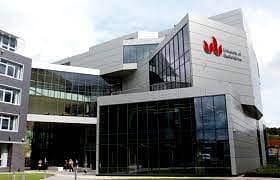Modern biotechnology is a hugely complex subject, drawing from a range of fields and technologies. On this course, you learn the latest new technologies in key areas; gain insights into how they are used in the global biotechnology industry; and discover how microbes can be used on an industrial scale to benefit humankind.
You also hone your research skills with a laboratory-based project in one of five taught areas: molecular biology; computational biology; applied microbiology; analytical biology; and biomaterials.
Why choose this course?
- Study the latest developments in applied microbiology and computational biology in high-quality, broad-based classes taught by dedicated staff with research experience in specialist subject areas
- Explore the latest technologies in molecular biology and the industrial processes that are used to exploit microbes for specific products and applications
- Develop the ability to use information from relevant sources, and independently and critically evaluate current research and advanced scholarship
- Gain the ability to use assured, accurate and fluent language to present your work, and learn to develop graphs and images that clearly illustrate complex points
- Benefit from a wide knowledge base and the key transferable skills that will give you the opportunity to take your career to new heights
- Take the part-time pathway option to better fit study around your work and family commitments
Unit Information - What will I learn?
Units
- Analytical Methods (BHS013-6) Compulsory
- Applied Microbiology (BHS014-6) Compulsory
- Biomaterials (BHS042-6) Compulsory
- Biotechnology Research Project (BHS000-6) Compulsory
- Computational And Systems Biology (BHS043-6) Compulsory
- Molecular Biology (BHS012-6) Compulsory
How will I be assessed?
Throughout course delivery workshops and tutorials are used to support the development of academic skills, alongside the learning and the assessment process. All in-course assessments are supported by timetabled, interactive tutorial sessions with formative assessment tasks, as appropriate. In addition, assessments that are based around practical work will involve a briefing before, and a session after the laboratory work to explain further the expectations of the assessment and support specific tasks such as data analysis. Examinations are supported by timetabled revision sessions and by workshop sessions covering examples of past examinations and the expectations of examination questions at each level. To assist our learners, assignment briefs a uniform set of information and a consistent set of assessment criteria across the course. At the start of each level, students are given introductory session(s) that set out the expectations for each year. For entry points, several sessions are used to provide guidance and support to students joining the University. These provide details of support for the development of academic skills and learning from the School, the Study Hub and initiatives such as peer-assisted learning (PASS scheme). For students progressing between levels, introductory sessions are also provided to ensure the students are aware of the change in expectations of learning and assessment. This will flag areas such as expectations for increased selfdirected learning, critical thinking and analysis that are expected as students go through the learning process. A key aim for the school is the integration of transferable skills within learning and assessment to enhance employability. Our courses build awareness of business applications of knowledge with assessments that develop practical ideas and employability. This is supported by the University's Careers and Employability service throughout the course. Students who commit academic offences due to a lack of clear understanding of academic integrity are further supported by being invited to attend academic practice guidance (APG) meetings with course staff to discuss the issues, and to refer them to the university academic integrity resource (AIR) to encourage them to develop good academic skills.


